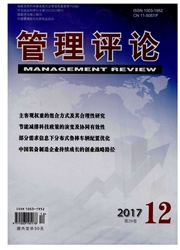

 中文摘要:
中文摘要:
Network coding has been proved to be an effective technique in improving the performance of data broadcast systems because clients requesting different data items can be served simultaneously in one broadcast. Previous studies showed that its efficiency is highly related to the content of clients’ cache. However, existing data broadcast systems do not take network coding information into account when making cache replacement decisions. In this paper, we propose two networks coding-aware cache replacement policies called DLRU and DLRU-CP to supplement network coding assisted data broadcast in on-demand broadcast environments. In DLRU, both data access and decoding contribution are taken into account to make replacement decisions. DLRU-CP is based on DLRU but allows clients to retrieve decodable data items that have not been requested yet. The performance gain of our proposed cache replacement policies over traditional cache replacement policy is shown in the simulation results, which demonstrate conclusively that the proposed policies can effectively reduce the overall response time.
 英文摘要:
英文摘要:
Network coding has been proved to be an effective technique in improving the performance of data broadcast systems because clients requesting different data items can be served simultaneously in one broadcast. Previous studies showed that its efficiency is highly related to the content of clients' cache. However, existing data broadcast systems do not take network coding information into account when making cache replacement decisions. In this paper, we propose two networks coding-aware cache replacement policies called DLRU and DLRU-CP to supplement network coding assisted data broadcast in on-demand broadcast environments. In DLRU, both data access and decoding contribution are taken into account to make replacement decisions. DLRU-CP is based on DLRU but allows clients to retrieve decodable data items that have not been requested yet. The performance gain of our proposed cache replacement policies over traditional cache replacement policy is shown in the simulation results, which demonstrate conclusively that the proposed policies can effectively reduce the overall response time.
 同期刊论文项目
同期刊论文项目
 同项目期刊论文
同项目期刊论文
 期刊信息
期刊信息
